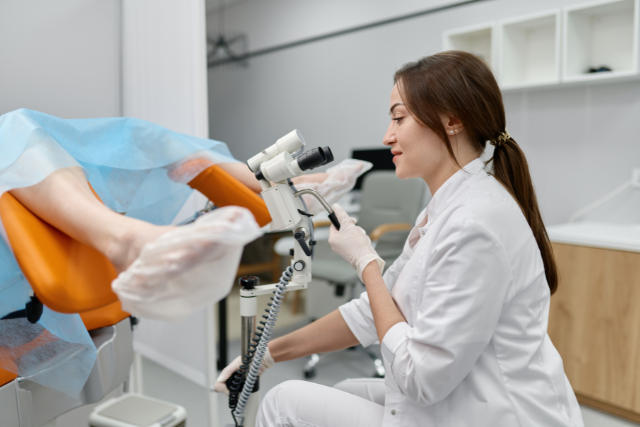Postpartum depression (PPD) is the most common complication following pregnancy, yet it remains largely underdiagnosed and undertreated. Estimates suggest that nearly 1 in 7 women experience PPD, but approximately 50% of those struggling with this condition go undiagnosed.
Traditional diagnostic methods, such as generic surveys conducted after the onset of symptoms, often fail to capture the nuances of this condition. However, the advent of artificial intelligence (AI) in healthcare is poised to change the landscape of PPD detection and treatment.
Understanding Postpartum Depression
Postpartum depression is characterized by feelings of extreme sadness, anxiety, and exhaustion that can occur after childbirth. Unlike the “baby blues,” which typically resolve within two weeks, PPD can last for months or even years if left untreated. Symptoms may include persistent sadness, loss of interest in activities, changes in sleeping and eating patterns, and difficulties bonding with the baby .
The consequences of untreated PPD can be severe, affecting not only the mother’s mental health but also the child’s development and family dynamics. According to a study published in the American Journal of Psychiatry, mothers with untreated PPD are at a higher risk of experiencing anxiety and depression in subsequent pregnancies(ESR Groups Journal).
The Challenge of Diagnosis
The current diagnostic process for PPD often relies on self-reported questionnaires, such as the Edinburgh Postnatal Depression Scale (EPDS), which includes eight questions assessing mood and behavior. While these surveys can help identify symptoms, they are typically administered after the onset of issues, which may lead to missed opportunities for early intervention.
This reactive approach to diagnosis is problematic, as it often results in women receiving support only after they have already begun to struggle. Moreover, the subjective nature of self-reporting can lead to inconsistencies in diagnosis, as not all women may feel comfortable discussing their mental health challenges.
The Promise of AI in Early Detection
Recognizing the limitations of traditional diagnostic methods, Dionysus Digital Health is developing innovative tools that leverage AI to identify biological markers associated with PPD before symptoms manifest. By analyzing chemical changes in specific genes, AI can offer a more proactive approach to PPD detection.
- Biomarker Identification: Recent research has shown that certain genetic variations and biochemical markers are linked to an increased risk of PPD. By developing AI algorithms that analyze these biomarkers, healthcare providers could identify at-risk individuals before symptoms appear(ESR Groups Journal)(Frontiers).
- Early Intervention: With the ability to detect PPD risk earlier, healthcare providers could implement preventive strategies, such as targeted counseling or support groups, which could significantly improve outcomes for mothers and their children.
- Personalized Treatment: AI’s capacity to analyze large datasets can help healthcare providers develop personalized treatment plans based on an individual’s genetic profile and risk factors. This precision medicine approach is essential in addressing the unique needs of each mother, leading to more effective interventions .
Supporting Research
The application of AI in maternal mental health is not just theoretical. Research published in journals like Nature and JAMA Psychiatry supports the efficacy of using genetic markers for predicting mental health disorders. A study in Nature found that machine learning models could accurately predict the likelihood of developing depression based on genetic and environmental data.
The National Institute of Mental Health (NIMH) has been exploring the role of biological markers in understanding mood disorders, including PPD. The NIMH emphasizes the importance of advancing research in this area to facilitate earlier detection and intervention.
Future Implications
The integration of AI into the diagnostic process for PPD represents a significant advancement in maternal mental health care. By shifting the focus from reactive to proactive screening, we can potentially reduce the incidence of untreated PPD and improve the quality of life for new mothers.
- Healthcare Accessibility: As AI technologies become more prevalent, they can be integrated into telehealth platforms, making it easier for women in remote or underserved areas to access screening and support.
- Educational Initiatives: Combining AI-driven diagnostics with educational campaigns can empower women to recognize early signs of PPD and seek help promptly, reducing stigma around mental health issues postpartum.
Postpartum depression is a serious public health concern that demands urgent attention. The traditional methods of diagnosing PPD are insufficient and often leave many women without the support they need. However, the advent of AI technologies presents an exciting opportunity to transform how we approach PPD detection and treatment.
By leveraging AI to identify biological markers and predict risk factors, healthcare providers can offer timely interventions and personalized care to new mothers. The future of maternal mental health lies in the effective integration of AI, leading to improved outcomes for women and their families. As research in this area progresses, we may soon see a world where PPD is no longer a hidden struggle, but a manageable condition that receives the attention and care it rightfully deserves.




